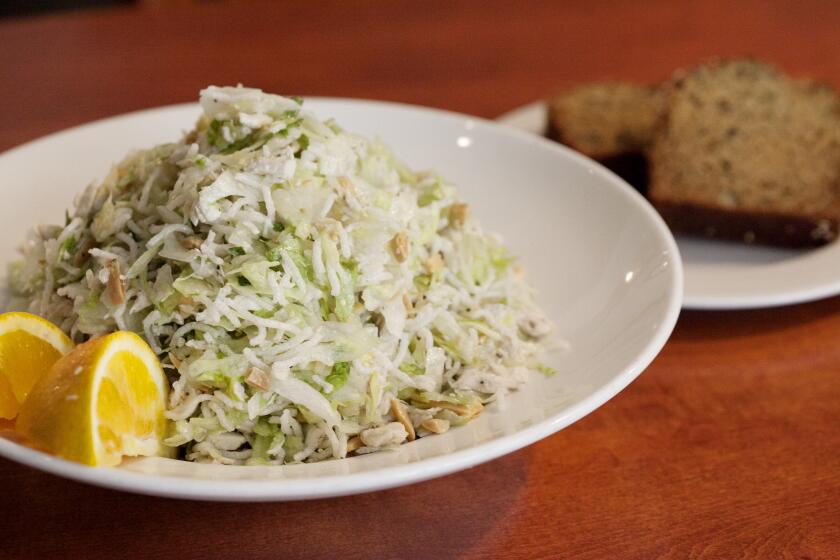Word Play
The Forklore column is a good idea. But its scholarly-etymological nature requires a meticulous accuracy if it is to have any value.
Plakous is not a Greek word since it has a Latin ending. Plakos / plaka denotes a slab, not necessarily edible, and not specifically a pancake as [Charles] Perry wants us to believe of (“The Rise of Cake,” May 4). The word pitta denotes a flat edible item, not necessarily made of filo dough. In today’s Greece you can find pitta bread as well as a flat cake eaten at New Year.
A few weeks earlier (“Pasta a la Cicero?,” April 17) , Perry wanted us to believe that lagana no longer denotes a form of bread in Greek. But during Easter one can walk into any bakery in Greece and ask for a lagana . Just as in ancient times, Perry would be handed the traditional loaf of unleavened bread.
Please do justice to the subject. Either do it right or forget it!
--GEORGE CALOYANNIDIS
Los Angeles
*
Charles Perry replies: When I wrote that pitta came to mean a thick cake, or lagana came to mean a kind of noodle, I did not mean that the older senses of the words disappeared. That rarely happens. It’s much more usual for a word to add new meanings than for it to switch over entirely to a new meaning.
Lagana is a good example. Having become the name of a noodle in medieval Greek and passed that sense on to Italian, it has actually dropped the “new” meaning and kept only its original meaning.
As for plakous: It is not Latin but purely Greek, derived from the word for “flat thing; flat rock” (which was plax, not plakos or plaka, in Classical Greek) by the addition of the suffix -ous/-ountos. It meant a flat cake or pancake.
*
The Romans, having borrowed the word from a western Greek dialect, pronounced it placenta. Originally, placenta had the same meaning in Latin that plakous did in Greek, but it had
already come to mean a thick baked concoction with a cheese and honey filling by the time of Cato the Elder (around 160 BC), making it one of the earliest cases of the phenomenon I was writing about: the tendency of pastries to become thicker and richer over time.
The fact that the Latin word placenta also gave rise to the modern Romanian and Hungarian
words for pancake is another case where the original meaning of a word survives the birth--and death--of a new meaning.
More to Read
Eat your way across L.A.
Get our weekly Tasting Notes newsletter for reviews, news and more.
You may occasionally receive promotional content from the Los Angeles Times.










